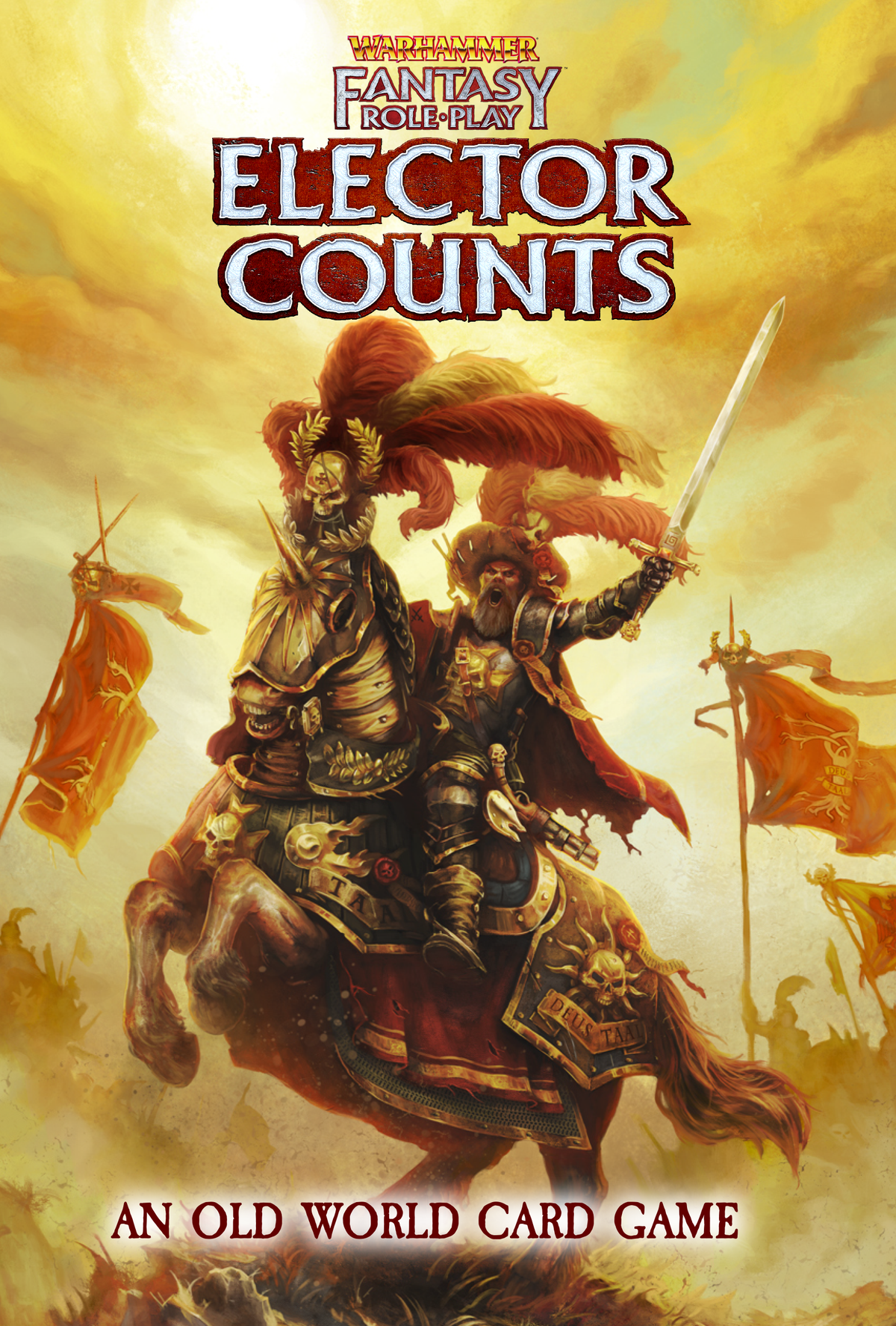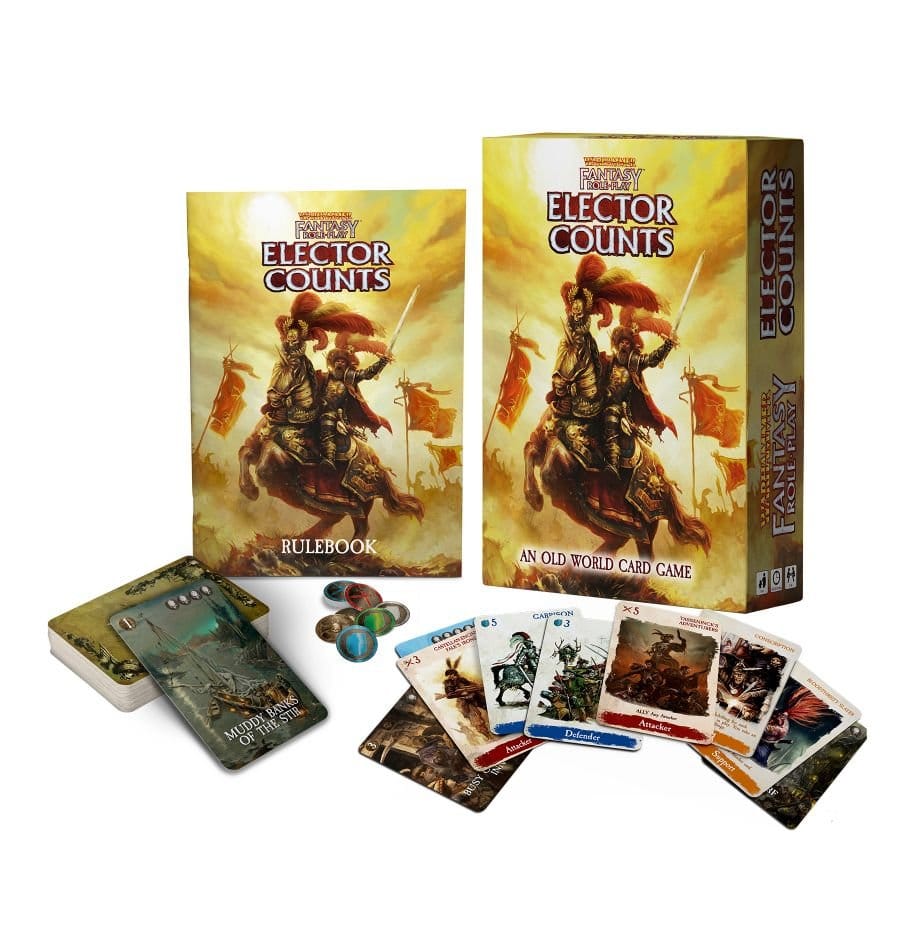
Arriving somewhat out of the left field is Elector Counts a new standalone card game set in the old Warhammer Fantasy world. Well we say new but the game is in fact a reskin of an old Doctor Who game by Martin Wallace that Cubicle 7 first published nearly a decade ago. Anyway it’s been given a fresh lick of mud and now appears as an in-universe Gwent style game that has apparently been ‘banned in inns and taverns from Middenheim to Nuln!’
Here you play one of the titular nobles vying for control of the Empire. From your seat of power you must raise armies, claim territory, make alliances, viciously break those alliances, lay siege to your opponents’ land and generally do all sorts of awful things in the pursuit of temporal power.
Each player starts with one of the 4 city starting locations, a starting amount of coins and a handful of cards that come in 4 flavours - Location cards you play to increase your domain, Attacker cards with which to conquer your opponent’s land, Defender cards with which to garrison yours and Support cars that have myriad uses, from raising more money and revealing your opponents hidden cards to insta-killing your opponents troops.
Each turn you can take any number of actions, such as playing new Locations, reinforcing them with Defenders or drafting new cards, with just the stipulation that you must have three cards in your hand at the end of your turn to pass to the next player. Defender cards are placed face down on a Location so as to conceal their strength and, unless revealed via a Support Card are only turned over when someone commits their forces to attack at which point the cards’ Strength points from all the cards in involved are tallied to resolve the winner of that particular combat. If the defending side wins they gain a Fortification token, whilst if the attacking side has removed all defenders they get to place a Siege token on the location.
The game either ends when one player has 5 Siege Tokens and 5 Fortification Tokens in play, or the End Game card is pulled from the deck at which point play continues without players drafting new cards and ends when no more actions can be performed. At which point each player determines the value of the land they control with the winner decided accordingly. The more land you own the more revenue you have but also the more stretched your defences can become, potentially setting you up for a dramatic fall in the end game as your opponents pile in on you.

It’s a relatively fast paced game, certainly by Warhammer standards, and once we’d got the hang of it most of our games tended to last around the 30-40 minute mark, with plenty of twists to keep all involved in the game up to the final count. And speaking of Warhammer standards, the art on the cards, depicting the various soldiers, wizards, siege weapons and arcane devices, is, as you’d expect, wonderful and brings the Old World to life in all its pustulant glory. Whilst turning over a card to reveal your forces doesn’t have quite the same impact as pushing a fully painted army of miniatures across the table it does come with the bonus that the entire game here costs less than an average Citadel niniatures hero.
The only real downer is that there isn’t more in-universe info on the cards themselves. Cubicle 7 have drawn on some reasonably deep cuts to fill out the deck and the thematic impact of deploying a Gavius Klugge to counter an opponents witch or triumphantly leading Wurlitzer’s Company of Foot into a Thriving Trading Town is somewhat diminished by having no idea of who they are and their relative importance within the setting.
Still that, of course, doesn’t affect gameplay one iota and I guess that’s is what all those wikis with their terabutes of trivia are for, so whether you have an encyclopedic knowledge of Warhammer minutia or not, Elector Counts remains a fun way to scratch that Old World itch. Which now we mention it is something you should probably think about seeing an apothecary about...
Original game design: Martin Wallace
WFRP Adaptation: Dave Allen, Elaine Lithgow, Kieran Murphy, Padraig Murphy
Published by Cubicle 7
This feature originally appeared in Wyrd Science Vol.1, Issue 3 (Oct '22)

